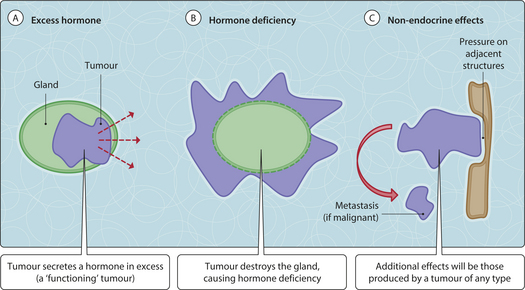Chapter 61 Endocrine pathology
Neoplasms of endocrine cells are common. They can secrete excess hormones, in which case they can manifest clinically through the hormone effects (Fig. 3.61.1A). Neoplasms that cause clinical effects by secreting excess hormones are called functioning tumours, while those that do not produce clinically apparent hormones are called non-functioning tumours. If a non-functioning tumour destroys the gland in which it has arisen, there may be a lack of hormone production and clinical presentation is with hormone deficiency (Fig. 3.61.1B). Endocrine neoplasms can also have non-endocrine effects (Fig. 3.61.1C).
< div class='tao-gold-member'>
Only gold members can continue reading. Log In or Register to continue
Stay updated, free articles. Join our Telegram channel

Full access? Get Clinical Tree









